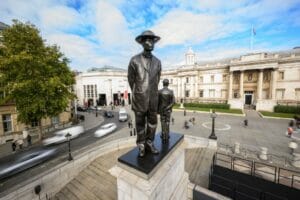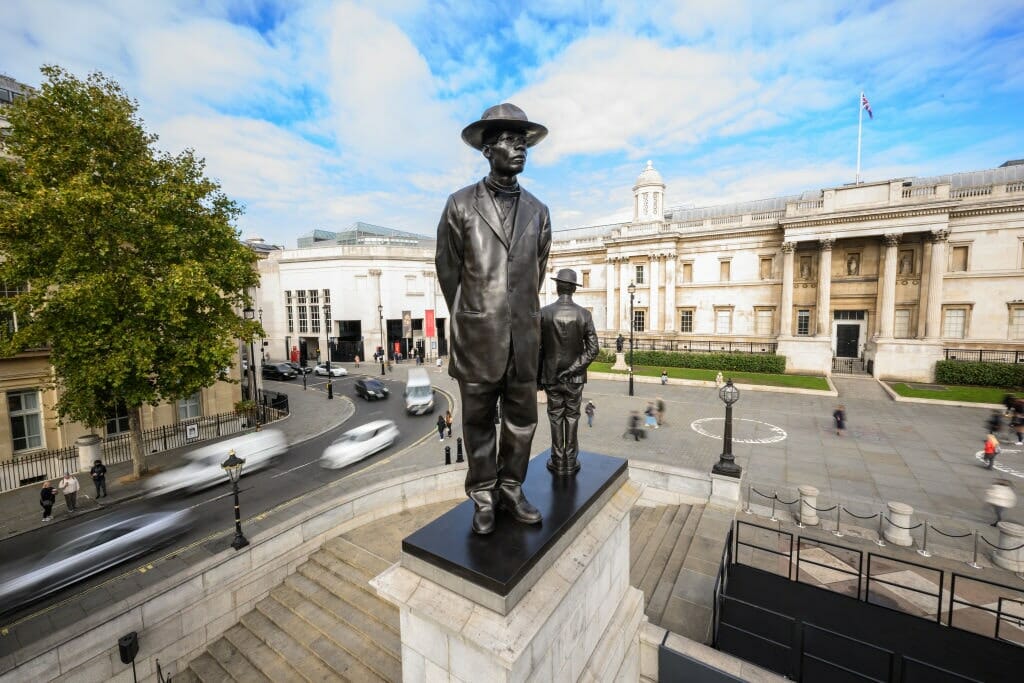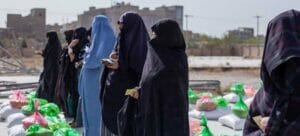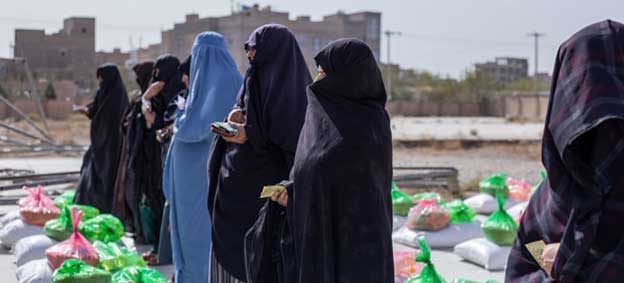

Samson Kambalu is a Malawian conceptual artist, writer and academic, whose sculpture Antelope was installed on the Fourth Plinth in Trafalgar Square in London in September 2022. The Fourth Plinth was originally designed for a large scale equestrian statue of a British monarch but is now reserved for a contemporary sculpture, chosen every two years. This is is the most significant public sculpture award in the UK. Antelope is a bronze sculpture depicting two figures: John Chilembwe, a Baptist preacher and Pan-Africanist who in 1915 led the first uprising against the British occupation and colonial rule of Malawi (then Nyasaland), and his friend, a British missionary named John Chorley. Its sheer scale and subject matter provide a powerful counterpoint to the imperial iconography of Trafalgar Square. Historian Susan Williams discusses the work with Kambalu.
How did you arrive at the choice of Chilembwe?
Chilembwe’s photograph from 1914 chose me. When I moved to Oxford to pick up a professorship at Ruskin School of Art, the first thing I did was to visit Weston Library, where British colonial bureaucrats deposited documentation of their lives in the colonies. The Malawi-related archives produced the mysterious photograph of Reverend John Chilembwe, of Providence Industrial Mission, wearing a white hat, standing next to a white man, John Chorley, of Zambezi Industrial Mission.
I had wondered why Reverend Chilembwe drew attention to his hat. He is wearing it sideways for effect. It turns out that Africans were forbidden to wear hats in the presence of white people during colonial times, and Chilembwe had created this photograph at the opening of his church as an act of defiance, with support from his friend. Africans were also forbidden to run a mission. Chilembwe would be killed months later, in an uprising against colonial injustices.
When the London Mayor’s office got in touch asking me to propose for the Fourth Plinth, I had the photograph as wallpaper on my phone. I immediately decided that I would propose a work based on the photograph. For me, it is his killing by colonial police months later that dictated the final look of the sculpture. Chilembwe looms over his white friend like a ghost.
Why is it called Antelope?
Chilembwe’s name means “antelope”. It alludes not only to the animal, but also to the Chewa principal mask, Kasiya Maliro, a womb disguised as an antelope. For the Chewa people of Malawi, it’s a symbol of radical generosity. Chilembwe’s photograph very much recalls aspects of Nyau masking, a Chewa secret society marked by prodigious gift giving through play, the Gule Wamkulu. Often transgressive, their purpose is to speak truth to power. Chilembwe hangs on to his African heritage even as he steps forward as a modern Malawian.
Malawi society, where I’m from, is heavily inspired by masking, and Nyau masking is all about critical thinking. When the masks come out from their secretive workshops (or dambwes) in the ancestral graveyards, received knowledge is questioned in unorthodox performances and prodigious gifts, opening up new ways of looking at the world.
Antelope shares Trafalgar Square with other statues which celebrate Britain’s imperial and military conquests, such as Nelson’s Column. The iconography of Antelope might be anti-imperialist, but it is also very much a piece of British history.
What remains of Chilembwe’s memory?
Chilembwe features on Malawi’s banknotes and he is remembered in a public holiday every year on 15 January – Chilembwe Day. But as I grew up in Malawi, the then President for Life, Hastings Kamuzu Banda, rendered Chilembwe as a peripheral figure in the fight for Malawi’s independence.
A revisiting of Chilembwe during the research for this sculpture revealed to me a man who was much more critical to the birth of Malawi as a nation. He was the first Malawian to resist colonial rule beyond tribal lines.
Why does this work of art matter today?
The statue will remain on the Fourth Plinth for two years. After that I think it would look good at the Smithsonian National Museum of African American History and Culture in Washington DC. Chilembwe was sponsored by many black churches in America, and taking this sculpture to America after its stay on Trafalgar Square would be Chilembwe returning the gift of liberty, freedom, to the American people. I’d like a copy too in Malawi, and another copy in Britain, and in Europe.
Chilembwe, who trained as a Baptist minister in the US before returning to Nyasaland in 1901, is believed to have influenced Pan-Africanists such as Marcus Garvey. But whereas they are widely known, Chilembwe has remained an obscure figure outside Malawi. I think Antelope will change this.
I hope we can now begin to detail the African colonial experience beyond generalisations of African or black.


